Optometry is a vast and deeply-detailed world, brimming with information, constant advances, and continuing studies. While this creates a space for a lot of education, it can also create a fair amount of confusion for patients outside of the optometry sphere in their everyday lives. One of the biggest questions that we see come up is: What is the difference between an optician, an optometrist and an ophthalmologist? These professions have significant differences, though they do work very closely together.
So let’s get into exactly what those differences are, and how each profession is attained (in case optometry is more than a curiosity for you!).
Optician
The first thing to clarify about opticians is that they are not doctors. They do not have medical training (aside from first aid, possibly), they cannot diagnose or treat conditions, nor can they issue prescriptions. This is a very common misconception that’s gained popularity with the rise of chain optometry services with recognizable storefronts in many places. The person who tests your eyes and provides you with a vision prescription is an optometrist (which we’ll elaborate on below).
An optician is a licensed professional trained to help patients select the best eyeglasses, contact lenses or other vision correction devices based on the prescription the optometrist or ophthalmologist provides them with.
To become an optician in Canada, you must enrol in and complete an Opticianry program at an accredited educational institution. Depending on the program you choose, it can take anywhere from one to three years to complete, and may be offered with part-time and full-time enrollment options. Since much of the world moved online to virtual study, an optician’s licence can also be acquired this way.
Once you’re through the Opticianry program, you can take the NACOR (National Alliance of Canadian Optician Regulators) National Optical Sciences Examination, the testing modality used by 9 out of 10 provinces (Quebec’s Regulatory Agency doesn’t currently use the NACOR exams; they have different options for licence testing and acquirement). If you pass, you can then apply for registration with your province’s College of Opticians (or equivalent if it isn’t called that). In Ontario, you’ll need successful education and examinations in both eyeglasses and contact lenses to apply for licensure.
Opticians support optometry by helping patients find the best eyeglasses or contact lenses (or both) to support their vision correction.
What about Vision Tests?
I wanted to touch quickly on vision tests provided by schools and drive test centres, and how they differ from a proper exam.
The vision screening tests provided by schools are very basic tests that can shed light on a child’s visual clarity and depth perception, and any obvious signs of potential problems. These vision screening tests do not provide prescriptions or diagnose conditions. However, based on the results of this screening, the staff providing the tests may notify the parents that they recommend a proper exam with an optometrist to take further measurements, provide further testing, and take a closer look at the child’s eye health to rule out any possible issues.
At drive test centres, when acquiring a driver’s licence, they will have you look into a dark box and identify when a small light appears to the left or right of your vision. This is not a vision test, nor does it provide any details of prescription. It simply tests peripheral vision, a crucial requirement for safe driving (this test is like a miniature version of the larger machine used to do more in-depth peripheral vision testing—known as a Visual Field Test—provided by optometrists and ophthalmologists).
Optometrist
An optometrist is a specialised primary vision care provider. They hold a doctor of optometry degree and can prescribe medications (usually supplements and antibiotics related to eye care), but are not medical doctors (those are ophthalmologists, which we’ll elaborate on below). They provide eye examinations, determine prescriptions for vision correction devices (such as glasses and contact lenses), as well as diagnosing and treating eye conditions and diseases.
Eye examinations with an optometrist are generally quite thorough, reviewing patient history, activities and hobbies, workplace environment and daily tasks, and anything else that may contribute information regarding their overall vision health. They’ll check not only visual acuity, but response and reaction times, eye pressure, dryness, redness, any abnormalities, and the state of the back of the eye, where the sensitive retina and optic nerve live. Their job is to assess the overall health of your eye, not just how well you can read a chart.
To become an optometrist, you need a few years of education to complete a Bachelor of Science degree or higher, followed by a further 4 years of education to receive a Doctor of Optometry degree from an accredited university (5 years in Quebec). Following that, some optometrists also complete 1 year residency (experiential training to help advance patient care skills). At this time, there are only 2 universities in Canada that offer the optometry program: University of Waterloo in Ontario and Université de Montréal in Quebec.
The Canadian Association of Optometrists describes the optometrist perfectly as “…educated, clinically trained and licensed to deliver the best standard of comprehensive primary eye care.” (The CAO also provides amazing resources for starting an optometry career, if that’s your jam. 😊)
There is a lot that an optometrist can do for you, aside from performing actual ocular surgery. If that may be required for your eye care, they’ll refer you to an ophthalmologist.
Ophthalmologist
Ophthalmologists are medical physicians who specialise in eye and vision health. Unlike optometrists, who are doctors of optometry, ophthalmologists complete additional years of medical school to obtain their medical degrees, which allows them to perform procedures and surgeries that an optometrist cannot.
Ophthalmologists also determine prescriptions for patients, and some also advise on glasses and contact lenses, though many choose to work with local hospitals and as referral points for optometrists with patients that present with complicated eye concerns or potential diseases. They’re also able to pinpoint other causes of disease, unrelated to vision, and make the appropriate care referrals. Some choose to specialise in one specific area of disease, such as glaucoma, paediatrics, or neuro-ophthalmology, among many other avenues. Many participate in scientific research, seeking more information on causes, cures, treatments and advances in technology (optometrists do this too, but from a non-surgical standpoint).
Typical ophthalmologist education includes a 4-year college degree, followed by 4 years of medical school, and then an additional 4 or more years of further medical and surgery education. This lengthy process gives the ophthalmologist the licensing needed to practise medicine and surgery, and qualifies them as the only eye care providers that can safely perform delicate and complicated eye surgeries.
Ophthalmologists, like opticians and optometrists, play a crucial role in the vision and overall ocular health of the public. Their licensure is a lengthy commitment, but a very important one.

Shout-Out to My CCOAs
I absolutely could not write this post and not mention the CCOAs, the Canadian Certified Optometric Assistants, the little behind-the-scenes heroes working in the optometry industry.
CCOAs can support the optometrist by having a deeper understanding of optometry and ocular health than an employee who doesn’t undergo the training. They can assist with administering eye drops, as well as educating patients and being able to discuss their vision needs based on their prescription. This frees up the doctors to be able to perform examinations and see more patients (in turn, helping more people, and allowing a clinic space to run more efficiently).
CCOA training can now be done entirely online, and consists of a 9-module program, typically over a period of 9 months, followed by a final examination. The CCOA certification is valid for 3 years, and requires specific measurements of continuing education to renew.
I thoroughly enjoyed my CCOA training, allowing me to dive deeper into various areas of optometric practice (especially anatomy, my favourite). I definitely encourage anyone interested in beginning a career in optometry but is unsure about committing to the amount of school or how far they want to go, to begin here to get a real taste for where your passion within optometry lies, and the best avenue to pursue to build on that (or stay as a CCOA, if that feels awesome enough).
Final Thoughts
It’s perfectly understandable that the similarities between an Optician, an Optometrist and an Ophthalmologist can cause a bit of confusion to someone outside the optometry sphere, but their differences are important, and each plays a vital part in the layers that make up the entire practice of ocular health.
We’ve presented these similarities and differences, as well as clarifying these roles, and also offered information on how to learn more about each avenue, should any peak your curiosity as a potential career path. Personally, I had always intended to follow my CCOA training with Optician training, but life had other plans, and I found my joy in writing about what I learned. The important thing to remember is if the nudge is there, follow it. Just to see how far it goes. It may be a hobby, it may be a new career choice, it may change your entire life. There’s a whole world of knowledge out there, and nothing stopping you from learning what calls to you but you. And if ocular health is calling, step into that world for a while and see what happens (we’re super nice and we have coffee and all the best sunglasses).
Wishing you all the best in wherever your path takes you today,
Sydney Gallant, CCOA










